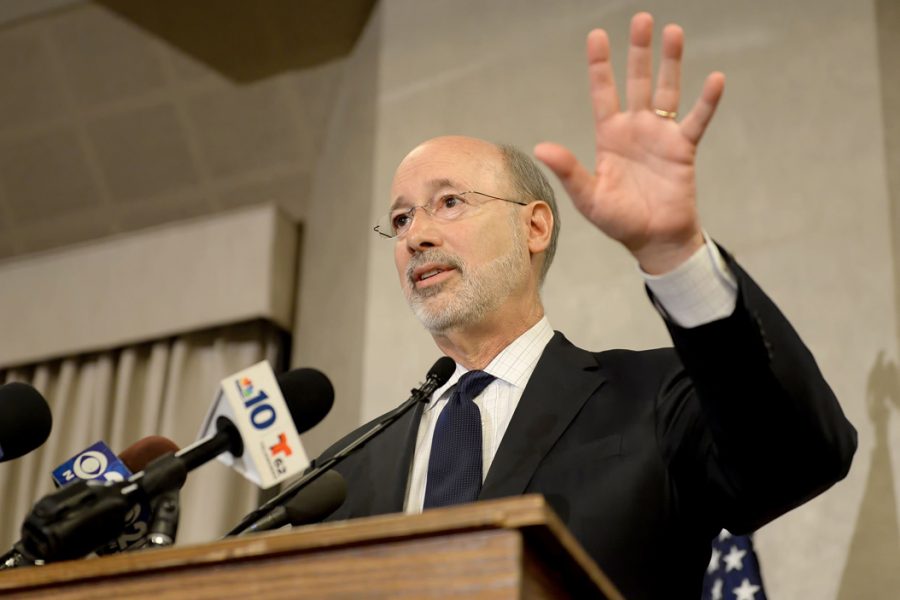In an effort to respond to both the looming state budget deficit and the falling inmate population in Pennsylvania, Gov. Tom Wolf’s office announced Jan. 6, they will be closing two state prisons, with one in northern Pittsburgh being heavily considered. But his ultimate decision must not prioritize fitting the bill for the budget over the impacts these closures will create on inmates and communities.
The State Correctional Institute Pittsburgh is located in the north of the city along the Ohio River and houses 1,921 inmates and 555 employees — the largest of the prisons being considered.
The closing of SCI Pittsburgh will save Pennsylvania $81 million annually, which would satisfy a substantial portion of the Governor’s $600 million budget deficit while also sticking to his goal of not raising income and sale taxes to balance the budget, something he will be proud to proclaim at the upcoming budget address Feb. 7.
While the Pittsburgh prison is the second most expensive on the considered list, 1 million less than SCI Waymart, another prison being considered in Wayne county, it also boasts numerous special features for its inmates. It holds the reception center where new inmates in western Pennsylvania must go first to enter into the state system, as well as therapeutic centers for treating substance abuse, a special needs center, an oncology treatment center and a center for hemophilic patients. Accommodations that the other facilities that were reviewed for closure — in Schuylkill, Luzerne and Mercer — just don’t have.
The Pittsburgh prison is also near the city’s hospitals, to provide the best medical care for the inmates, and since the majority of those imprisoned are from Pittsburgh and Allegheny county, it allows for more frequent family visits — a luxury that won’t be as easily available when the inmates are moved to various prisons across the state.
With the decrease in the inmate population in Pennsylvania, closing prisons to cut back on the correctional budget isn’t what is being contested. It’s the jamming of inmates into different prisons across the state that will only make their sentences more unnecessarily unpleasant and could lead to higher levels of recidivism.
The transfer process, acclimation to life in a new prison and the decrease in family visits as loved ones will have to travel longer distances can all negatively impact inmates’ quality of life and inhibit their rehabilitation processes.
And moving prison employees around the state in order to keep their jobs will certainly have unfortunate repercussions on the families and on home communities, as they adjust to the economic changes of losing the prison and its employees.
Likewise, of the 555 employees at the prison, 60 percent reside in Allegheny county. Corrections Secretary John Wetzel stated that every affected employee will be offered a job elsewhere. While an admirable goal, Wetzel’s solution fails to take into account the nature of these workers lives. For the Pittsburgh locals who work at the prison, this means they’ll likely have to uproot their lives and families to be transferred to a new job.
Of the 27 state prisons in Pennsylvania, and the five being considered, Pittsburgh is the second most isolated, rivaled only by SCI Mercer to its north. If inmates and employees are transferred even to the closest option, they would still be located at least 50 miles away in either Frederick Town, Indiana, Somerset or Mercer.
Sen. Wayne Fontana, D-Brookline, said in a letter to Wetzel Monday that he is preparing legislation that would force the Department of Corrections to hold a public meeting before being able to close a prison in the area, so residents and workers will be able to voice their input on the decision. Wetzel has yet to confirm if these public hearings will come to fruition or not but he best hurry as the Governor’s office plans to have the decision finalized by Jan. 26.
While Wolf’s commitment to Pennsylvania residents by refusing to raise income and sale taxes is commendable, he must still make decisions that have the interest of the entire state in mind. Choosing to close one of the prisons in the middle of the state, such as SCI Retreat or SCI Frackville, will still save between $44 and $46 million for the budget. And other options for cuts include Wolf continuing his pursuits for higher taxes on Marcellus Shale and eliminating superfluous positions in the state government.
To balance the budget without raising taxes, Wolf will inevitably have to make cuts all across the state, but should do so with Pennsylvania residents and communities in mind and not just what has the potential to save the most money this year.
Editor’s note: A previous version of this editorial published Jan. 11, implied Gov. Tom Wolf and the Department of Corrections had already reached a decision about which of the five prisons being considered would be closed. The decision has not been reached and won’t be until Jan. 26. The editorial meant only to advise Wolf to consider the ramifications of closing the Pittsburgh prison, should he decide to do so. The Pitt News regrets this error.



